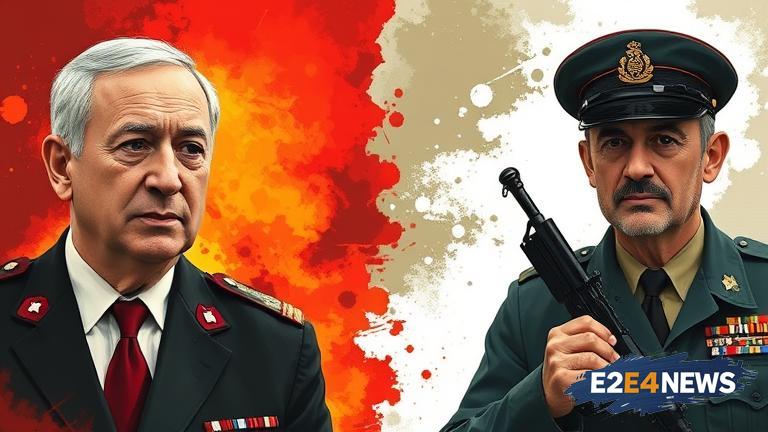The recent statements made by Israeli Prime Minister Benjamin Netanyahu regarding a potential expansion of the war in Gaza have sparked controversy among former Israeli military and spy chiefs. These leaders have expressed concerns over the potential consequences of such a move, including the risk of civilian casualties and the long-term impact on the region. Netanyahu’s comments have been seen as a hint at a possible escalation of the conflict, which has already resulted in significant loss of life and destruction. The former military and spy chiefs, who have experience in handling similar situations, have cautioned against such a move, citing the need for a more nuanced approach. They argue that a military solution alone is unlikely to resolve the underlying issues and may even exacerbate the situation. The concerns raised by these leaders are not limited to the humanitarian aspect, but also extend to the strategic implications of such a move. They believe that an expanded war in Gaza could have far-reaching consequences, including the potential for increased radicalization and instability in the region. Furthermore, they argue that the Israeli military’s actions in Gaza have already been subject to intense international scrutiny, and any further escalation could lead to increased diplomatic pressure and potential isolation. The former military and spy chiefs have also highlighted the importance of considering alternative solutions, such as diplomatic efforts and economic development, to address the root causes of the conflict. They believe that a comprehensive approach, which takes into account the needs and concerns of all parties involved, is essential to achieving a lasting resolution. The controversy surrounding Netanyahu’s comments has sparked a heated debate in Israel, with some arguing that a strong military response is necessary to deter Hamas and other militant groups, while others believe that a more measured approach is needed. The international community has also been watching the situation closely, with many calling for restraint and a return to diplomatic efforts. The United Nations has expressed concerns over the potential consequences of an expanded war in Gaza, and has urged all parties to exercise restraint and work towards a peaceful resolution. The European Union has also weighed in on the issue, calling for a de-escalation of tensions and a return to negotiations. As the situation continues to unfold, it remains to be seen how the Israeli government will proceed, and whether the concerns raised by the former military and spy chiefs will be taken into account. The fate of the people of Gaza and the wider region hangs in the balance, and it is imperative that a solution is found that prioritizes their safety and well-being. The need for a peaceful resolution to the conflict has never been more pressing, and it is essential that all parties work together to achieve this goal. The international community must continue to play a constructive role in promoting diplomacy and restraint, and must hold all parties accountable for their actions. Ultimately, the key to resolving the conflict lies in addressing the underlying issues, including the need for a two-state solution and an end to the occupation. Until this is achieved, the cycle of violence and instability is likely to continue, with devastating consequences for all parties involved. The situation in Gaza is a stark reminder of the need for a comprehensive and sustainable solution to the conflict, one that prioritizes the needs and rights of all parties involved. As the world watches the situation unfold, it is essential that we learn from the past and work towards a brighter future for all. The concerns raised by the former Israeli military and spy chiefs serve as a timely reminder of the need for caution and restraint, and the importance of prioritizing diplomacy and peaceful resolution. The people of Gaza and the wider region deserve nothing less, and it is our collective responsibility to ensure that their rights and needs are respected and protected. The road to peace will not be easy, but it is essential that we continue to work towards this goal, using all available means to promote diplomacy, restraint, and a comprehensive solution to the conflict.
